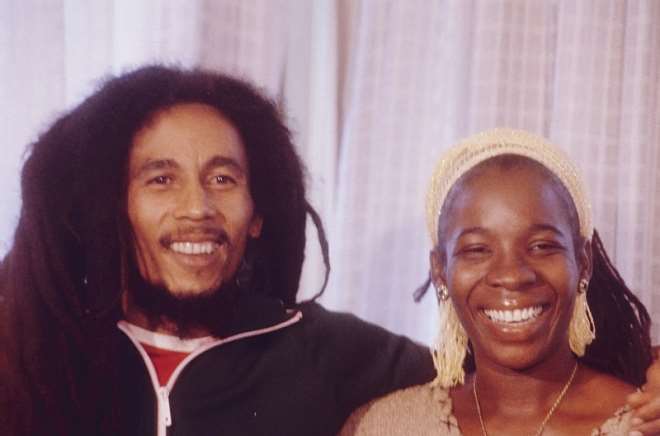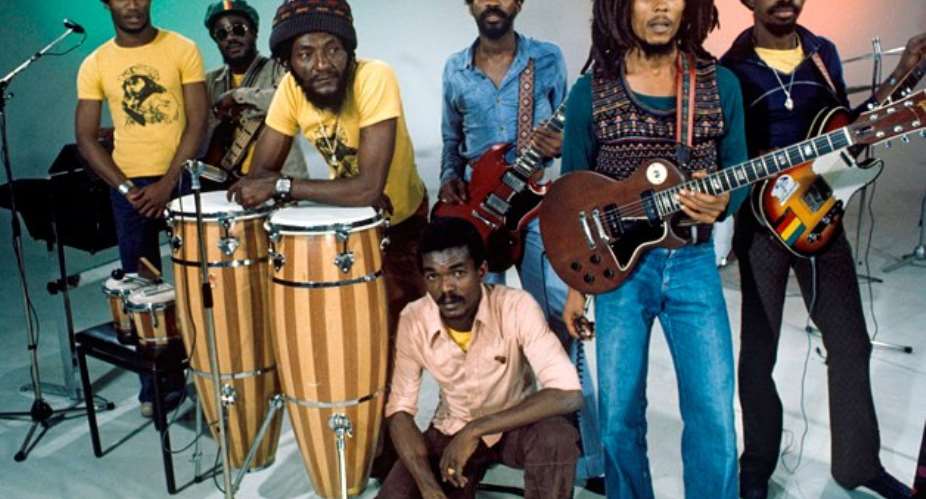The Jamaican reggae icon, Robert Nesta Marley, died on May 11, 1981. As the world’s best-selling artist at the time, his sudden departure shocked millions across the globe. Marley’s ingenious albums have won several posthumous awards worldwide.
Many reggae lovers around the world observe May 11 in memory of the late Bob Marley or The Legend, as he was affectionately called.
During his lifetime, Bob Marley inspired millions with his philosophical composition. It is, therefore, not surprising that his music recordings have been able to stand the test of time to this day.
As a reggae fan, I became fond of The Legend at 16. In fact, I had wanted to be a Rastafarian by virtue of my passion for reggae. The thoughts of growing dreadlocks appealed to me, but my late father raised a stern objection.
Some of my favourite tracks were the all-time: Buffalo Soldier, Three Little Birds, Africa Unite, Waiting in Vain, Jamming, and No Woman No Cry.
Most recordings of Bob Marley centred on the theory of Rastafari movement, Africa unity, human rights, politics, freedom, peace, love and racial equality, among others.
Early life and career
Bob was born on February 6, 1945, in a town called Nine Mile, Jamaica. His parents were Norval Sinclair Marley, a British naval captain and Cedella Booker, an Afro-Jamaican.
In 1955, Norval died when his son was 10. The last time little Bob saw his father was when he was 5. He grew up fatherless in the ghetto of Trench Town.
Bob learned how to play the guitar and he wrote a few songs. It is believed that Marley inherited his gift from his Christian mother who was known for her splendid singing voice.
He released his first album, Judge Not, in 1962 when he was 17. Bob’s maiden recording was successful and that paved way for a brighter future in his musical career.
Subsequently, he joined the vocal group The Wailers in 1963. The group was made up of some famous artists including, Bunny Livingstone and Peter Tosh.
The original Wailers broke up in 1974. He formed Bob Marley & the Wailers with Bob himself as guitarist, songwriter and main singer. His backing team was the Wailers’ Band and the ‘I Threes’ vocalists.
Support for Pan-Africanism
Bob Marley was an ardent pan-Africanist who believed in Africa unity, freedom and black empowerment. He composed a number of anti-imperialist tracks such as Exodus, Survival and Blackman Redemption.
He was inspired by the philosophy of Marcus Garvey, a Jamaican activist and proponent of pan-African movement who founded the Black Star Line.
During his famous One Love Peace Concert in 1978, Marley united two Jamaican political leaders on stage – Prime Minister Michael Manley and opposition leader Edward Saega.
In his revolutionary songs Get Up Stand Up and Revolution, Bob Marley challenged Africans to rise and fight the ‘oppressor’ for their freedom.
He released the Redemption Song and Africa Unite condemning racism. One of his popular songs, Zimbabwe, was recorded when he performed at Zimbabwe’s Independence Day celebration in 1980.
Rastafari movement
Bob became the key advocate of Rastafari movement in the 60s. The tenets of Rastafari philosophy influenced his style of music, and that gave the movement an overwhelming international recognition.
As an ambassador of Rastafari, Bob Marley composed several songs highlighting the philosophy of the movement. Notably among his religious tracks were: Forever Loving Jah, Rastaman Live Up and Exodus. Bob started using marijuana in 1966 when he converted to the Rastafari faith.
However, Marley accepted baptism on November 4, 1980; a decision that left many Rastafarians disappointed. According to his Christian mother, Bob’s final words were: ‘Jesus, take me’.
Awards and honours
The Legend left an indelible mark in the reggae industry. In 1978, Bob was awarded a Peace Medal by the United Nations in recognition of his efforts for peace, equal rights and justice for Africa.
His Exodus album was adjudged ‘Album of the Century’ in 1999 by Time Magazine, and One Love was named ‘Song of the Millennium’ by the BBC.
In 2001, Bob Marley was honoured with the ‘Grammy Lifetime Achievement Award’ and ‘Star on the Hollywood Walk of Fame’. His masterpiece tracks have won many other awards and honours posthumously.
Family and social life
Bob married Rita Anderson in 1966, and the couple had four children. Meanwhile, Bob Marley fathered many children out of wedlock. In all, he left behind 11 children.
Aside from music, soccer was his greatest passion. In 1977, Marley was diagnosed with malignant melanoma (cancer) on one of his big toes. But he turned down medical advice to have his toe amputated, citing religious beliefs.
Bob’s health began to deteriorate as cancer increased to other parts of his body. Sadly, The Legend gave up the ghost at 36 in the United States.
While on his sickbed, he said to his first son Ziggy Marley ‘Money can’t buy life’. Bob Marley received a state funeral in Jamaica on May 21, 1981. He was interred in a chapel near his birthplace.
After 38years of his passing on, the legacy of Bob Marley still lives on. ‘Don’t gain the world and lose your soul. Wisdom is better than silver and gold’ – B. Marley.
James Annan
Cantonments, Accra
- The writer is a Deputy Superintendent of Prisons (DSP) at the Ghana Prisons Headquarters
 3. The World's Greatest Reggae Artist Covered With Dreadlocks
3. The World's Greatest Reggae Artist Covered With Dreadlocks
 4. Bob Marley And His Lovely Wife Rita
4. Bob Marley And His Lovely Wife Rita
 2. Bob Marley In A Solemn Mood During One Of His Concerts
2. Bob Marley In A Solemn Mood During One Of His Concerts
 5. The Legend Loved Soccer Aside From Reggae Music
5. The Legend Loved Soccer Aside From Reggae Music
 6. The Reggae Maestro Receiving The Un Peace Medal In 1978
6. The Reggae Maestro Receiving The Un Peace Medal In 1978
 7. From Left Julian, Ziggy And Damian Marley Receiving A Posthumous Award On Behalf Of Their Dad
7. From Left Julian, Ziggy And Damian Marley Receiving A Posthumous Award On Behalf Of Their Dad
 8. A Section Of Bob Marley & The Wailers In A Pose
8. A Section Of Bob Marley & The Wailers In A Pose





 Supreme court declares payment of wages to spouses of President, Vice President ...
Supreme court declares payment of wages to spouses of President, Vice President ...
 Publish full KPMG report on SML-GRA contract – Bright Simons to Akufo-Addo
Publish full KPMG report on SML-GRA contract – Bright Simons to Akufo-Addo
 Kumasi International Airport to begin full operations by end of June
Kumasi International Airport to begin full operations by end of June
 Election 2024: Our ‘real challenge’ is getting ‘un-bothered’ youth to vote – Abu...
Election 2024: Our ‘real challenge’ is getting ‘un-bothered’ youth to vote – Abu...
 [Full text] Findings and recommendations by KPMG on SML-GRA contract
[Full text] Findings and recommendations by KPMG on SML-GRA contract
 Renegotiate SML contract – Akufo-Addo to GRA, Finance Ministry
Renegotiate SML contract – Akufo-Addo to GRA, Finance Ministry
 J.B Danquah-Adu murder trial: Sexy Dondon to Subpoena Ken Agyapong, Ursula Owusu
J.B Danquah-Adu murder trial: Sexy Dondon to Subpoena Ken Agyapong, Ursula Owusu
 Galamsey: Five Burkinabes jailed 20 years each for mining
Galamsey: Five Burkinabes jailed 20 years each for mining
 'It's no crime' – Abu Sakara defends Alan's exit from NPP
'It's no crime' – Abu Sakara defends Alan's exit from NPP
 'We know all your houses, pay your bills now or we’ll disconnect you; we're all ...
'We know all your houses, pay your bills now or we’ll disconnect you; we're all ...
